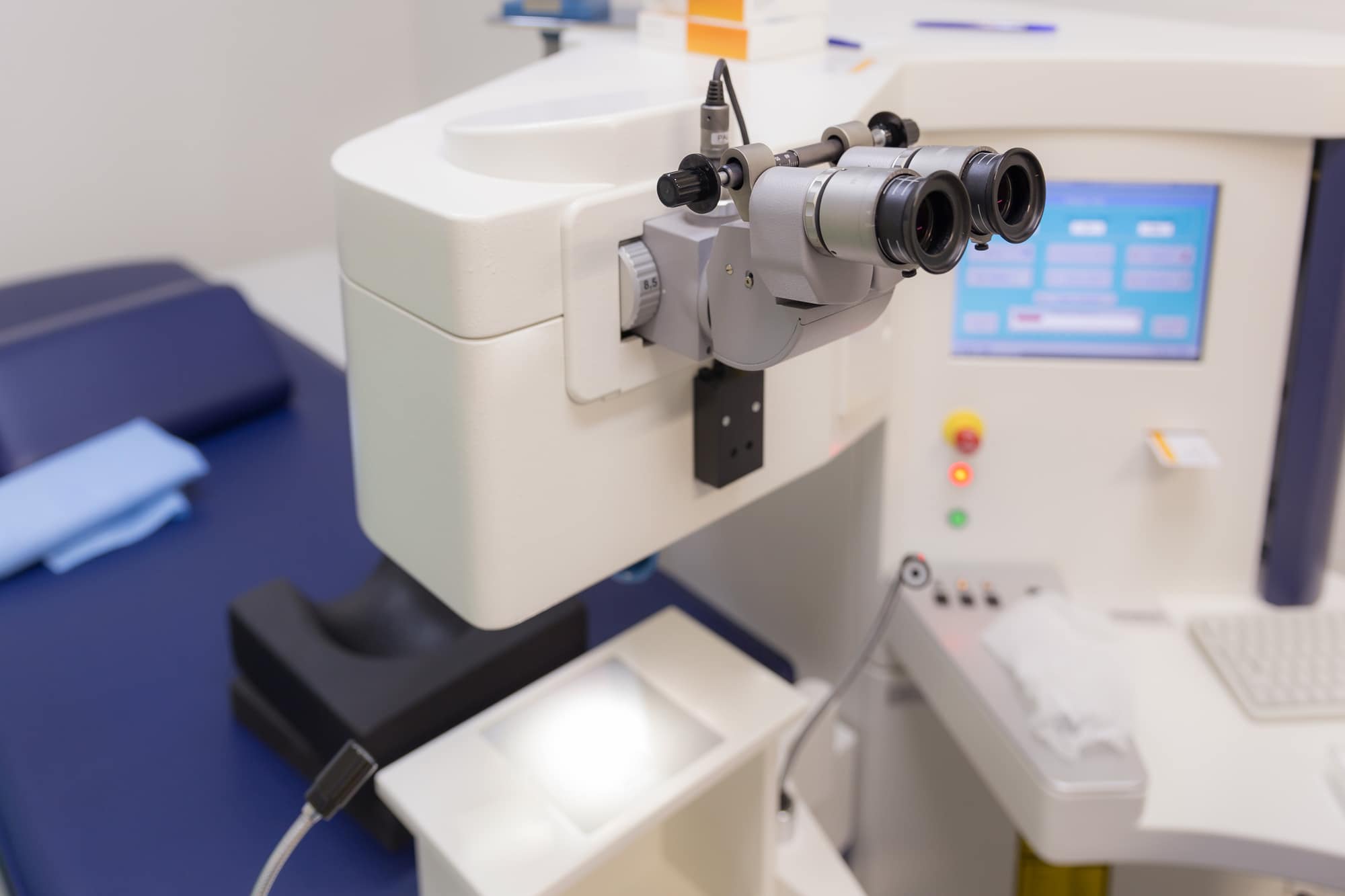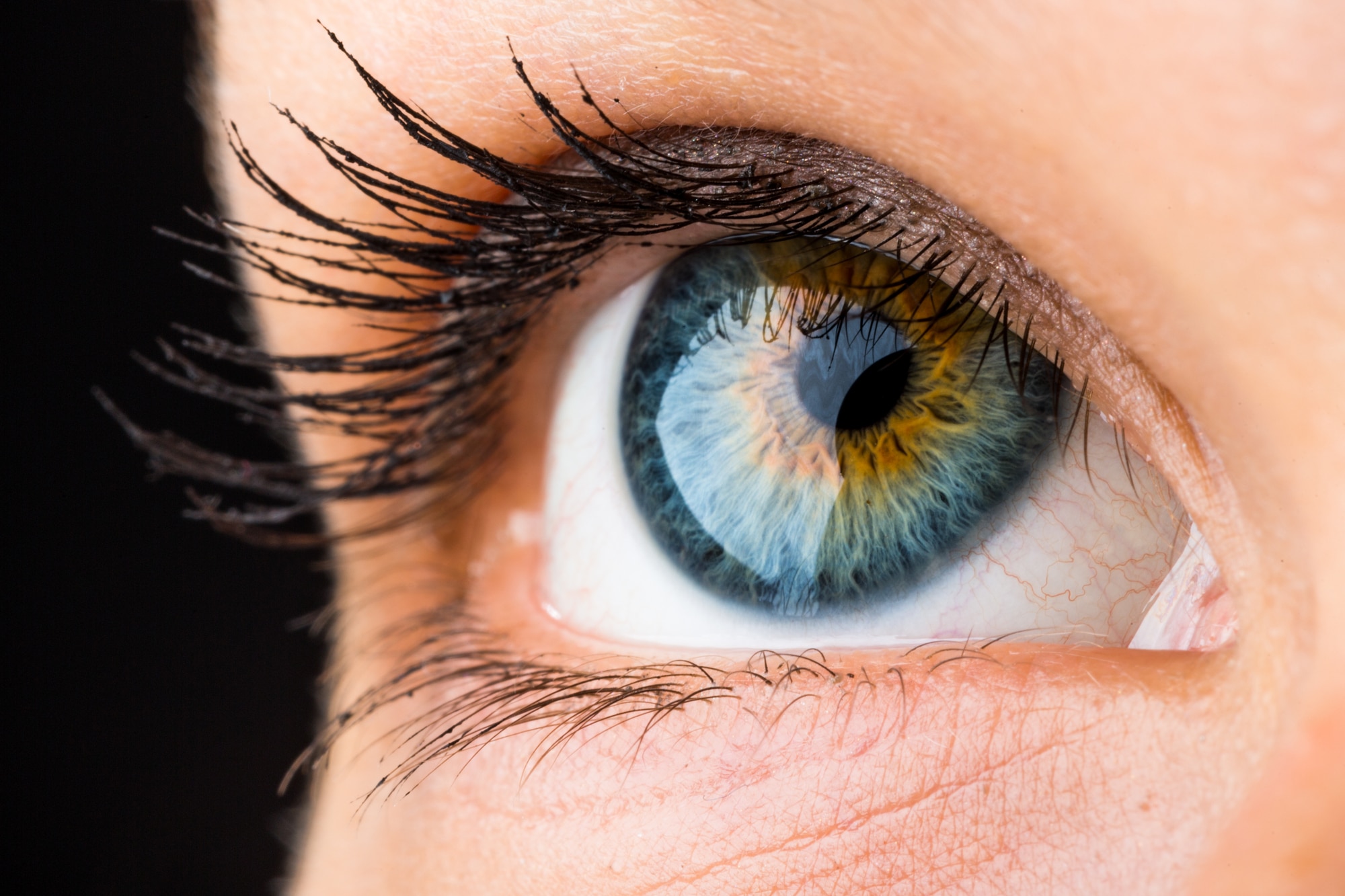Eyeglasses have been a traditional solution for correcting vision problems for many centuries. When contact lenses arrived on the scene, they offered a new practical solution for restoring vision. Now an increasing number of eye surgery options have displaced glasses or contacts as the only solutions for healthy vision.
At SouthWest Vision in St. George, we provide pre- and post-operative care for patients undergoing LASIK eye surgery or other surgical eye procedures. Our goal is to help you attain the best vision possible using advanced technologies.
Did you know that as you age your eyes change? This is one reason why it’s so important to meet with our trained and experienced eye doctors at SouthWest Vision in St. George to determine which corrective solution is right for you. Many people are aware of LASIK eye surgery, but there are many types of eye surgeries and our eye doctors will determine what is right for you.

Laser correction eye surgeries offer a snapshot of evolution in eye surgeries. Photorefractive Keratectomy (PRK) became the first successful surgery to change the shape of the cornea through removing tissue. The FDA approved PRK in 1995 and it is still widely used early in the 21st Century. With PRK, it only takes a few days for vision improvements to be realized.
LASIK eye surgery followed on the heels of PRK. It involves cutting a thin flap in the outer covering of the eye to reshape the cornea. Unlike PRK, it only takes a few hours to gain sharper vision with LASIK surgery. There is some risk of suffering dry eye and other complications such as halos around bright lights until the flap fully heals. LASIK can be done with the aid of a mechanical cutting tool, using all lasers or incorporating wavefront technology that measures how light hits the eye.
Nearsighted patients are not alone in benefiting from surgeries. Farsightedness can be corrected through Conductive Keratoplasty (CK). It uses a small probe and low heat radio waves to create spots around the cornea periphery. CK steepens the cornea to give patients better near vision.
Some eye surgeries require implanting new artificial lenses to produce vision improvements. Implantable lenses similar to contact lenses can correct more severe levels of nearsightedness. These artificial lenses go permanently over the natural lens on the eye. Refractive Lens Exchange (RLE) takes it a step further and replaces the natural lens with an artificial lens of a different shape. RLE is done to correct extreme farsightedness.
Our eyes change as we age, so some corrective surgeries are not a good option for everyone. People under 18, for example, are not good candidates for laser eye surgeries because their eyes change rapidly as their bodies are growing. Health also factors in eye surgeries. If you have diabetes or other medical conditions that impact eyesight, certain eye surgeries may pose serious risks. Our trained eye doctors in St. George will provide the solution that is appropriate for your individual needs.
If you have worn glasses or contact lenses for a long time, you may have wondered if corrective eye surgery is a good choice for you. At SouthWest Vision in St. George, our experienced eye doctors will provide evaluations and referrals for patients interested in corrective eye surgery. Advanced diagnostic testing performed in our office will allow our doctors to evaluate your eligibility for surgery.
If you are determined to be a surgical candidate, your surgery options will be discussed with you. We will be in correspondence with the surgeon regarding your evaluation and surgical determination. Once your surgery is scheduled, we will schedule follow-up appointments for you in our St. George office. Our optometrists are experienced in working with patients pre- and post-operation and will answer any questions that you have along the way.
If you are considering corrective eye surgery, call us at 435-673-5577 to schedule a consultation.

If you are considering corrective eye surgery, call us at 435-673-5577 to schedule a consultation.
Laser surgery corrects the shape of the cornea itself, eliminating most of the visual errors that might otherwise call for corrective lenses, however, not all patients are good candidates for corrective eye surgery. At SouthWest Vision, we offer an alternative non-surgical option using an advanced corneal reshaping technique known as orthokeratology or Ortho-K. This technique can produce changes to the way your cornea refracts light.
To understand the benefits of Ortho-K, let us first consider how the cornea works. The cornea is a transparent, spherical bulge that sits over the lens of your eye. In addition to protecting the inner parts of the eye, the cornea also performs some lens-like tasks of its own. The shape of cornea causes incoming light rays to be refracted, or bent, in such a way that the lens can focus them into a clear, sharp image before they pass on to the retina and optic nerve. Ultimately, the optic nerve transmits the image to your brain.
Deformations in the shape of the cornea cause refraction to go wrong in various ways, producing the fuzzy images characteristic of nearsightedness, farsightedness, and astigmatism. Glasses and contact lens are curved to “pre-refract” incoming light to compensate for your personal degree of corneal deformation. Laser surgery actually corrects the shape of cornea itself, eliminating most of all of the visual errors that might otherwise call for corrective lenses.

The cornea is a transparent, spherical bulge that sits over the lens of your eye.
Your optometrist will map the shape of your corneas precisely and then fabricate special contact lenses. Unlike standard contacts, you’ll wear these lenses at night. The lenses perform a subtle corneal reshaping as you sleep, meaning that you can take them out the next morning and enjoy perfect or near-perfect vision.
Ortho-K can help you see clearly for one or two days at a time, or possibly even longer. By wearing them regularly at night, you can maintain your clarity of vision for as long as you decide to continue using them. If you decide to use another form of vision correction, simply stop wearing the Ortho-K lenses and your corneas will assume their previous shape. Talk to our knowledgeable eye doctors in St.George to see whether Ortho-K makes sense for you.

Ortho-K lenses perform a subtle corneal reshaping as you sleep.
